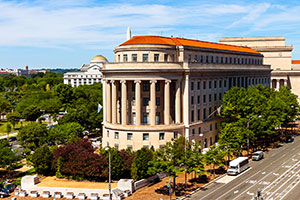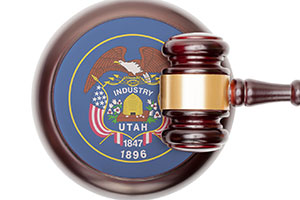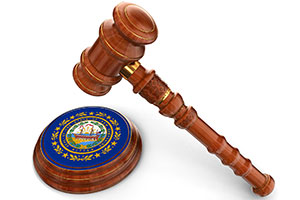Expert witnesses are in short supply at the Federal Trade Commission after Carl Shapiro, an economist who teaches at the University of California – Berkeley, declined to participate in the FTC’s antitrust suit against Facebook.
Facebook Litigation
In December 2020, the FTC sued Facebook for engaging in anticompetitive practices. The FTC alleged that Facebook has maintained a monopoly position in the social networking industry by acquiring competitors, including Instagram and WhatsApp. The FTC also contended that Facebook imposed anticompetitive conditions on software developers.
Facebook has acquired a number of smaller companies that play varying roles in the social media industry, including Kustomer (customer service chatbots), Snaptu (smartphone apps), Beluga (messaging apps), Face.com (facial recognition), and Onavo (mobile analytics). The acquisitions have typically been folded into Facebook. Beluga’s messaging app, for example, became Facebook Messenger.
The FTC alleged that Facebook’s “course of conduct harms competition, leaves consumers with few choices for personal social networking, and deprives advertisers of the benefits of competition.” The FTC wanted Facebook to sell Instagram and WhatsApp, to stop imposing anticompetitive conditions on software developers, and to seek prior approval from the FTC before acquiring new companies.
The case has not gone well for the FTC. In late June, the judge dismissed the FTC’s complaint after finding that the FTC did not allege sufficient facts to demonstrate that Facebook was actually a monopoly. The court also dismissed a companion suit by state attorneys general because the states waited too long to file it.
The court gave the FTC an opportunity to amend its complaint to allege more facts that would demonstrate a violation of antitrust laws. The FTC requested an extension of time to prepare and file its amended complaint, apparently in response to its loss of Shapiro’s services.
Missing Expert
The FTC may be able to draft an amended complaint without expert assistance, but the agency has traditionally relied upon economists to make a case against alleged monopolists. It hired Shapiro in 2019, paying his economic consulting firm more than $5 million.
Politico reports that the FTC paid Shapiro almost twice as much as it paid for other expert services during the past two years “at a time the agency has told Congress it is strapped for cash.” That might not be surprising. With a value of more than $1 trillion, Facebook can afford to fund an aggressive antitrust defense. The FTC will need to spend some money if it has any hope of proving its case.
Shapiro did not respond to Politico’s inquiries about the reasons for his departure. Politico notes that Shapiro has criticized new FTC Chair Lina Khan’s “aggressive approach to antitrust enforcement.” The social value of breaking up large companies is controversial, with many economists arguing that businesses should not be punished for their success. An economic system that depends on competition, after all, should recognize that the best competitors may drive less innovative competitors out of the marketplace.
On the other hand, tactics that intentionally stifle competition, such as buying direct competitors and shutting them down to maintain market dominance, are harmful to consumers. A disagreement about where to draw the line in antitrust enforcement may narrow the field of economists who are willing to act as expert witnesses for the FTC.
Paying for Experts
The FTC confirmed Shapiro’s departure and its need for a new expert:
“The FTC does not comment on internal deliberations over any particular expert engagement,” spokesperson Lindsay Kryzak told POLITICO. “But the agency routinely reviews its expert support needs, including to ensure that the agency is making the best use of limited public funds while carrying out its law enforcement obligations.”
A 2019 audit found that the FTC pays about $750 per hour for experts. The audit recommended that the FTC use its in-house economists as experts in most cases. However, a former staffer told Politico that the FTC doesn’t have the computing power or infrastructure to take on the massive data analysis required in large antitrust cases.
Politico determined that the FTC spent $21.3 million for expert witness services during the fiscal year that ended on September 30, 2020. In the current fiscal year, the FTC has spent $25 million. The amounts paid vary between a few thousand dollars and several million, depending on the work required. The $5.7 million that the FTC paid to Shapiro’s firm is nearly twice the amount the FTC paid for expert witness services in any other case.
Outside experts told Politico that the largest expenditure of funds usually occurs later in the case, when experts are required to write reports. The FTC typically pays $1 million to $2 million for expert reports in complex cases. The Facebook litigation, however, is far from typical. One expert explained that the Facebook case involves “mind bogglingly large quantities of data.”
The new expert may be able to use the data that Shapiro already furnished to the FTC. To defend his or her opinions in court, however, the expert will need to conduct a fresh analysis of that date. That will likely require significant funding.
As a former FTC staffer explained to POLITICO, politicians and the public have complained that tech firms like Facebook are “too big,” although their reasons for making those complaints sometimes have little to do with economics. The staffer laments that the same people complain that the FTC spends too much money on expert witnesses. Noting that critics can’t have it both ways, the former staffer argued that Congress needs to give the FTC adequate resources if it wants the agency to tackle economic behemoths like Facebook.













